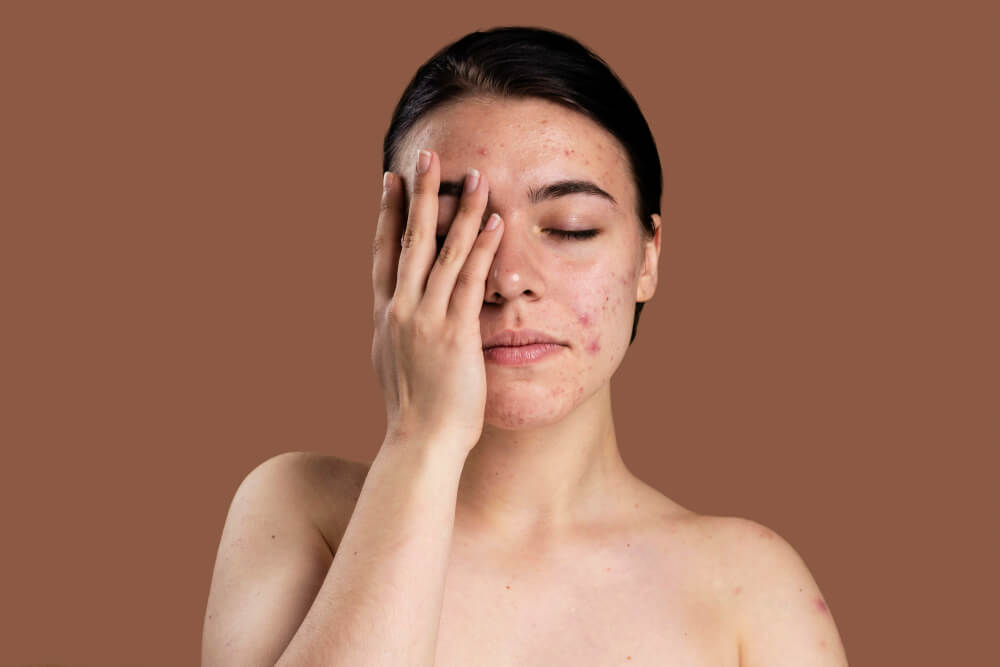Acne Treatment: A Comprehensive Guide to Skincare Routines
Acne is a skin condition characterized by the appearance of pimples, whiteheads, blackheads, and sometimes cysts. It is a common skin problem that affects people of all ages, but it is particularly prevalent during adolescence and early adulthood. While acne can be frustrating and embarrassing, there are many effective ways to manage and treat it.

Understanding Acne
Acne occurs when hair follicles become clogged with oil and dead skin cells. Bacteria can then thrive in these clogged pores, leading to inflammation and acne breakouts. Several factors can contribute to acne, including:
- Hormonal Changes Hormonal fluctuations during puberty, pregnancy, and menstruation can trigger acne.
- Genetics A family history of acne can increase the risk of developing the condition.
- Medications Certain medications can cause or worsen acne.
- Stress Stress can exacerbate acne symptoms.
- Diet While the exact link between diet and acne is debated, some studies suggest that certain foods may contribute to breakouts.
Over-the-Counter Acne Treatments
Many effective over-the-counter (OTC) products are available to help manage acne. These products often contain ingredients such as:
- Salicylic Acid Exfoliates the skin and unclogs pores.
- Benzoyl Peroxide Kills bacteria and reduces inflammation.
- Retinoids Promote skin cell turnover and unclog pores.
- Sulfur Helps to dry out acne lesions.
It’s important to choose products that are appropriate for your skin type and severity of acne. If over-the-counter products are not effective, it may be necessary to consult a dermatologist for prescription treatments.
Prescription Acne Treatments

For more severe cases of acne, a dermatologist may prescribe medications such as:
- Topical Antibiotics: To kill bacteria and reduce inflammation.
- Oral Antibiotics: To treat severe acne or acne that does not respond to topical medications.
- Isotretinoin: A powerful medication that can significantly clear up severe acne, but it has potential side effects and requires close monitoring.
Lifestyle Modifications for Acne Management
In addition to medical treatments, certain lifestyle modifications can help manage acne:
- Gentle Cleansing Wash your face twice a day with a gentle cleanser to remove dirt and oil.
- Avoid Touching Your Face Touching your face can transfer bacteria and worsen acne.
- Use Non-Comedogenic Products Choose skincare products that are labeled as non-comedogenic, meaning they won’t clog pores.
- Manage Stress Practice stress-reduction techniques such as meditation, yoga, or deep breathing.
- Consider Dietary Changes While the link between diet and acne is debated, some people find that limiting certain foods, such as dairy and processed foods, can help improve their skin.
When to See a Dermatologist
If you are struggling with acne that does not respond to over-the-counter treatments or is causing significant distress, it is important to consult a dermatologist. A dermatologist can provide a proper diagnosis, recommend appropriate treatments, and offer personalized advice.
Acne is a common skin condition that can significantly impact self-esteem and quality of life. Effective acne management requires a combination of skincare routines, medical treatments, and lifestyle modifications. By understanding the causes of acne, seeking appropriate treatment, and following a consistent skincare regimen, individuals can achieve clearer skin and boost their confidence. Remember, patience and persistence are key in managing acne, and consulting with a dermatologist can provide personalized guidance and support.
